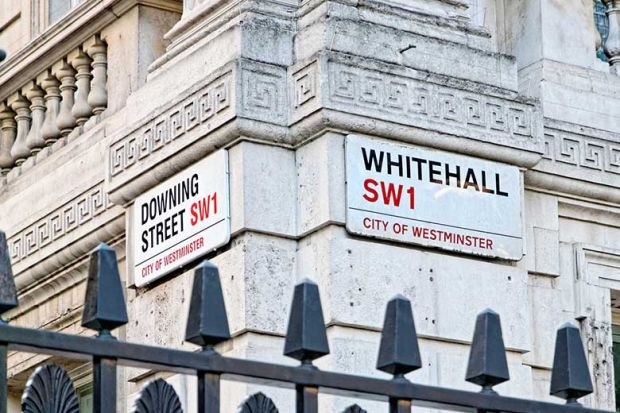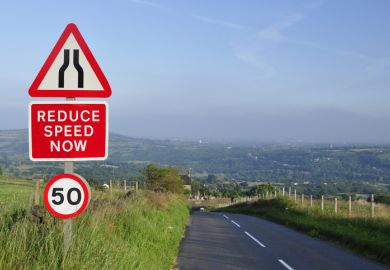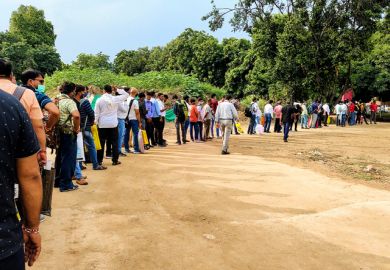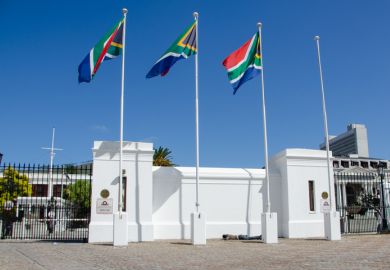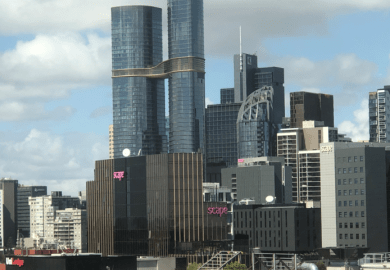The Migration Advisory Committee’s review of the graduate visa route will define any abuse purely as a “breach of the immigration rules”, while ministers’ wish to judge if the route is undermining UK higher education’s “integrity” is “the bit we’ll struggle with the most”, according to its chair.
Brian Bell, the MAC chair and professor of economics at King’s College London, also told a Westminster Higher Education Forum event on international student policy that a major element of the review’s recommendations would focus on urging government to “find out more” about the graduate route.
After first indicating in December that the route would be reviewed by the MAC within a wider “plan to cut net migration”, home secretary James Cleverly finally set out terms of reference for that rapid review on 11 March – asking the committee to report by 14 May.
A key area of contention between government and universities is the definition of abuse – Tory critics are concerned the route is being used as a back door for low-skill labour, but the route is open to any overseas student who graduates from a UK university and makes no stipulations in terms of salary or type of employment.
Mr Cleverly said in his letter that “we want to ensure the graduate route is not being abused. In particular, that some of the demand for study visas is not being driven more by a desire for immigration rather than education”.
Professor Bell said on the government’s focus on abuse in the terms of reference: “We’re going take that to mean unlawful activity; in other words, breaching of the immigration rules. We’re not going to include on abuse the fact that different people want different things from universities or have different objectives or intentions when they come here. That’s not in any way a breach of the immigration rules so we’re not going to consider that as abuse.”
Professor Bell said the review would look at “demographics” on the graduate visa route because it was “surprising” how “little is known” about those on the route, “which universities they attend and which courses they study” – and “what they are doing on the route – we assume most of them work but we actually don’t know that; we don’t know what they earn and where they are working”.
Mr Cleverly’s letter also asked the MAC for “analysis of whether the graduate route is undermining the integrity and quality of the UK higher education system”.
“That’s the bit I expect we’re going to struggle with most, to think of what exactly that means,” said Professor Bell.
He also highlighted the “very short timeline” for the review set by the government, meaning that the MAC cannot conduct its usual call for evidence. It will hold a round table with universities and a forum for university leaders, he added.
On interaction between the graduate visa with other factors, Professor Bell said: “We’re not going to try to explain how the higher education sector should be funded, that’s way outside our remit, but of course we will have to engage with the discussion about how important those [international students’] fees are for subsidising the losses universities tend to make on domestic students, but also of course the very large losses they make on research funding as well.”
The review will also, said Professor Bell, look at “what we think will happen to the graduate route because of changes already announced and implemented by the government”, such as restrictions on overseas students’ dependents introduced in January.
He also noted that the government often talks about attracting “the best and brightest” international students, “but don’t define what ‘best and brightest’ means”.
“I think there’s a question we will have to engage with, with policymakers, to think about what exactly they mean by that,” he added.
The key element of the review “was just to get some facts on the ground here”, continued Professor Bell. “Because there are so few facts on the graduate route and lots of assertions.”
He added: “My own personal view is that I think an awful lot of what we’ll end up saying is we still don’t know enough – perhaps we’ll always say that because we’re a bunch of academics…But we’ll probably find there are still quite big gaps in our knowledge once we’ve done this piece of work, particularly given the timeframe we’ve got.
“I wouldn’t be surprised If quite a bit our recommendation to government is to do more to find out about the graduate route.”
Register to continue
Why register?
- Registration is free and only takes a moment
- Once registered, you can read 3 articles a month
- Sign up for our newsletter
Subscribe
Or subscribe for unlimited access to:
- Unlimited access to news, views, insights & reviews
- Digital editions
- Digital access to THE’s university and college rankings analysis
Already registered or a current subscriber? Login
